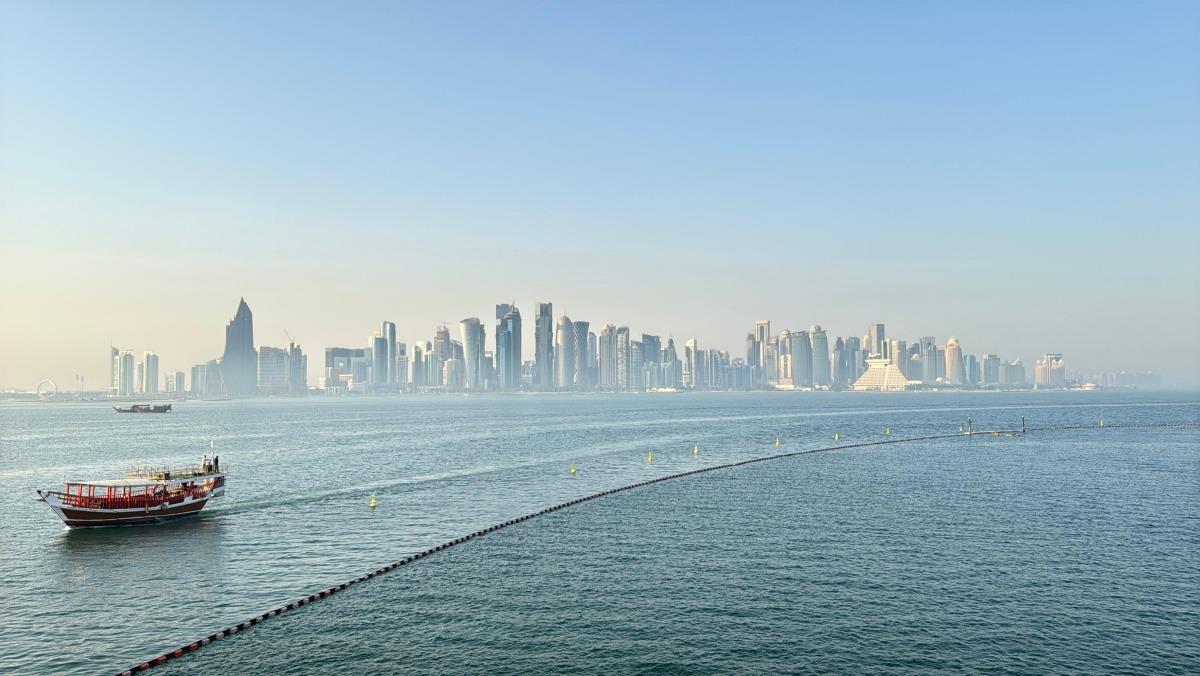Qatar Signals Long-Term Growth With Ambitious FDI Drive
Doha, Qatar: Qatar is charting a long-term growth course with an ambitious plan to attract foreign direct investment (FDI), aligned with the Third National Development Strategy (NDS3). Backed by sweeping legal reforms, streamlined business registration, and expanded foreign ownership rights, the country is indicating that it offers stability, transparency, and a predictable roadmap for sustainable growth beyond its traditional reliance on hydrocarbons.
Authorities say new legal and regulatory reforms, including streamlined company registration, expanded foreign ownership rights, and sector-specific free zones, are designed to make the Gulf state one of the most competitive business hubs in the region.
“Qatar has leaned into volatility by developing a diversification strategy for sustainable growth,” said Catherine Martinez, Counsel at Crowell & Moring in Doha.
“Instead of stepping back during uncertain times, the country has put forward the NDS3 roadmap with a very clear goal of $100bn in foreign direct investment by 2030. To achieve this, legal reforms are facilitating faster business setup, with company registration transitioning toward a“one-day” process. Additionally, foreign investors can now own 100 percent of their operations in most sectors. These steps all send a powerful message abroad.”
Catherine Martinez, Counsel at Crowell & Moring
Experts indicate that the reforms appear to be yielding positive results. In 2024, Qatar saw a 110 percent surge in new FDI projects, with momentum strongest in business services, technology, consumer goods, and textiles. Martinez said,“On the venture side, fintech is clearly the hot spot, making up almost a third of deals last year. The government is supporting this with investor-friendly rules and regulations, including tax incentives, foreign ownership, and multiple free zones that cater to different types of businesses.”
She noted that the country's attractiveness stems from stability and simplicity in its investment environment compared to regional peers.“It ranks 11th in the IMD World Competitiveness Index and first globally for tax policy and basic infrastructure, with a flat 10 percent corporate tax. But beyond rankings, what really tips the balance is predictable licensing, efficient dispute resolution, and strong quality of life, the practical aspects that matter to investors,” Martinez said.
The US remains Qatar's single largest investor and plays a pivotal role in its digital economy ambitions. She highlighted that cooperation through the US–Qatar Strategic Dialogue has spurred reforms in cybersecurity and fintech.“We are seeing US companies partner with Qatari firms to bring in cutting-edge solutions,” she said, citing a $1bn joint venture between Quantinuum and Al Rabban Holdings, which positions Qatar as a leader in quantum technology.
However, she underlined that Doha's partnerships also extend well beyond Washington.
Read Also-
Qatar based firms named among best workplaces in Asia
Qatar banking sector loan book up 1.1% to QR1,406.9bn
Total earnings for Qatari-listed companies see 3.8% gain in Q2
“The Qatar FinTech Hub has attracted startups from more than 70 countries, while Singapore ties have opened channels for digital banking innovation. GCC-level cooperation and local initiatives like QNB's MoUs with QFC and QDB, or Doha Bank's Fintech & Innovation Hub, are building the 'soft infrastructure' of accelerators, mentors, and talent pipelines,” said Martinez.
She emphasised that regulation must evolve in tandem with the rapid adoption of fintech. Qatar's Central Bank (QCB) has unveiled a Fintech Strategy and a regulatory sandbox, along with new rules that encompass digital assets, buy-now-pay-later services, and e-KYC systems.
“From our perspective as legal advisors, what's reassuring is the layered system between the QCB, the QFC Authority, and Qatar Financial Markets Authority, which gives clarity to companies while aligning with global best practices,” Martinez said.
“One of Qatar's greatest strengths is its policy coherence. Every major initiative ties back to Qatar National Vision 2030, creating predictability that investors rarely find in today's global markets. That's what gives companies confidence in the long term,” she added.
The expert further stated that these efforts solidify Qatar's position as a resilient investment hub.

Legal Disclaimer:
MENAFN provides the
information “as is” without warranty of any kind. We do not accept
any responsibility or liability for the accuracy, content, images,
videos, licenses, completeness, legality, or reliability of the information
contained in this article. If you have any complaints or copyright
issues related to this article, kindly contact the provider above.
Most popular stories
Market Research

- United States Lubricants Market Growth Opportunities & Share Dynamics 20252033
- Daytrading Publishes New Study On The Dangers Of AI Tools Used By Traders
- Newcastle United Announce Multi-Year Partnership With Bydfi
- Ecosync & Carboncore Launch Full Stages Refi Infrastructure Linking Carbon Credits With Web3
- Utila Triples Valuation In Six Months As Stablecoin Infrastructure Demand Triggers $22M Extension Round
- From Zero To Crypto Hero In 25 Minutes: Changelly Introduces A Free Gamified Crash Course



















Comments
No comment